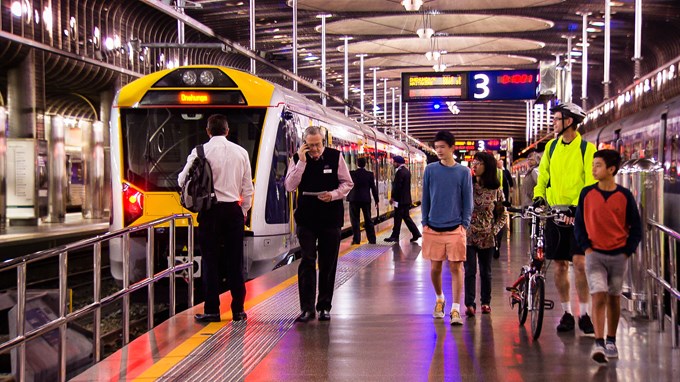In the second part of our series, we look at how the council is investing in Auckland's future.
Auckland Council’s financial commitment to the region’s future will see it increase its capital investment to $1.8 billion over the next financial year, for a total of $18.7 billion over 10 years.
This will build on the capital investment the council has already made in the first five years since Auckland’s local government reorganisation came into effect on 1 November 2010. For each of the past two financial years alone, that investment stood at $1.5 billion.
In 2014/2015 the figure mainly represented improvements in our transport network, the three waters network and community facilities.
This investment included:
- $350 million to maintain and improve roads and footpaths
- $204 million for new electric trains and a depot
- $153 million in water and wastewater management and upgrades
- $133 million investment in local and regional parks.
Chair of the Finance and Performance Committee, Councillor Penny Webster says that over the next 10 years, Auckland Council’s long-term plan will build on the region’s robust financial platform.
“Much of the current and anticipated investment is to cater for the demands of projected population growth.”
Our population has grown by 132,000 in the past five years and is expected to reach 2.2 million by 2043. Playing our part in speeding up the supply of affordable housing and delivering necessary improvements in transport and other infrastructure are just two of the challenges posed by significant numbers of extra people and the services they need.
Financial balancing act
Our investment is a response to the unique opportunity that was offered by the pooling of assets and resources with the merger of Auckland’s eight councils.
“Aucklanders have consistently told us that people want action on their top priorities: ‘fixing transport’, creating great neighbourhoods, and thriving centres, parks and public space that people love, with more choice about where they live. At the same time they want us to keep rates affordable and keep debt low”, says Auckland Council Chief Financial Officer, Sue Tindall.
This balancing act – investing for the region’s future development, while operating prudently and seeking best value for money – has guided the new council’s financial strategy.
Our asset base is expected to grow from $42 billion to $60 billion. We will slow the growth of our debt – it will be $11.6 billion by 2025 compared with the $13.7 billion previously forecast.
“We’ve worked hard to achieve efficiency gains, working smarter to deliver the same or better level of service for a lower cost than originally budgeted. These efficiency gains have grown year on year in the five years since the council was established and now represent $183 million per year,” says Ms Tindall.
Auckland Council’s strong financial performance has been achieved against a backdrop of unprecedented organisational change. In our first five years we’ve sought consistency in many areas:
- moving to a single rating system based on capital value
- starting to standardise wastewater tariffs and rebalance domestic and business rates
- reducing 150 inherited bylaws to one region-wide bylaw for dogs, solid waste, food safety, and health and hygiene.
Contributing nationally
In the bigger picture, Auckland’s economy is a fillip to the national state of play. In the past year our GDP grew at 3.7 per cent and 37,000 new jobs were created.
Auckland entrepreneurs are performing well in specialist sectors such as food and beverage, ICT, tourism, health and medical sciences, marine, and professional services. The council has created an innovation precinct to stimulate and nurture growth in these and other areas.
The region is also becoming a destination for film-makers, high-value tourists and a growing number of major events. The 30-plus major events held here in 2014/2015 injected $73 million into the regional economy. We continue to build on the catalyst of Rugby World Cup 2011, which brought more than half a billion dollars into the Auckland economy and generated the equivalent of 14,000 year-long jobs.
Read more about the council’s financial picture in the latest annual report future plans in the current 10-year budget.


